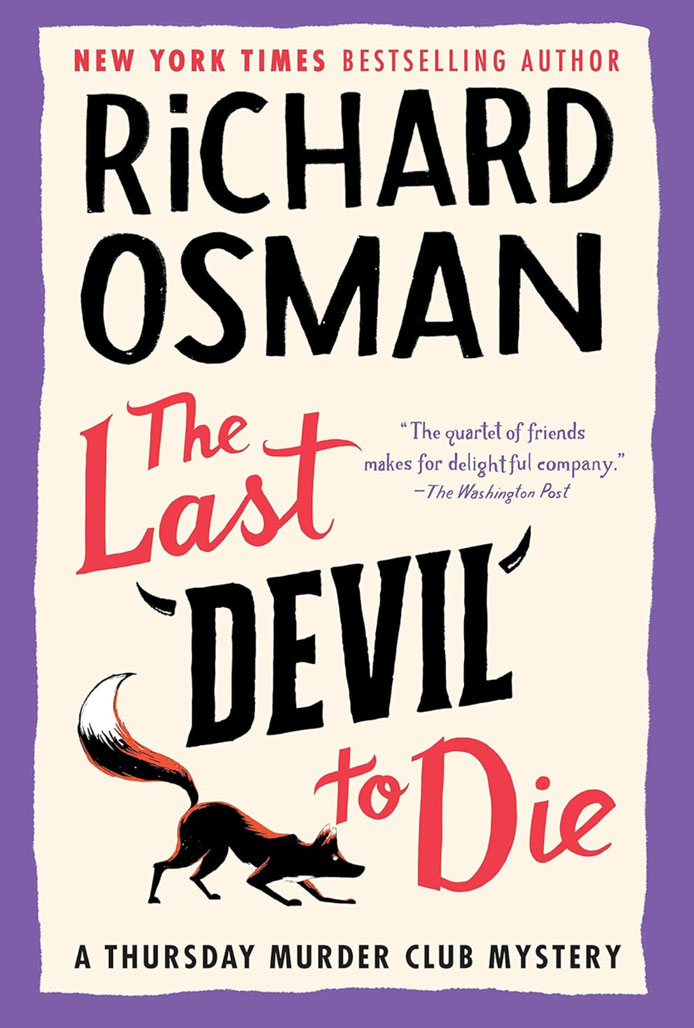Today’s Post by Joe Farace
“It wasn’t until I started reading and found books they wouldn’t let us read in school that I discovered you could be insane and happy and have a good life without being like everybody else.” – John Waters, a fellow native Baltimorean and one of my cinematic heroes.
The Daily Kvetch
In a few past Book Club posts, I’ve complained about the use of “widows and orphans” in books and also about how often writers get guns and automobiles wrong in their text. I’m no expert on firearms but I know Glock handguns don’t have safeties but writer after writer talks about people using Glocks “turning off (or on) the safety.” Or mixing up how revolvers and automatic handguns work. But cars! It’s even worse. Like calling a Mustang GT a GTI. Last night I was reading a book set in the late 1940’s—I won’t mention it’s title because I might actually finish reading it—where a character in the novel says he repaired the protagonist’s truck’s brakes by fitting “new pads.” While the disk brake was originally patented in 1902, disc brakes did not begin to be available in automobiles until the 1950s. And trucks? Disc brakes were first used on Chevrolet trucks in late 1970.
Why does this bother me? I’ve written 37 books and the one thing common to writing all of them is that al every book’s editors and copy editors constantly busted my cajones and picked on my text. Typically it was stuff like the proper use of “that” or “which” and where commas go.
I don’t understand why copy editors and editors after looking at any of the books I’ve referenced never bothered to look up that a 1948 (or older) truck couldn’t have disc brakes or Ford never produced a Mustang GTI. I have some ideas: If the author sells a lot of books they don’t want to offend them by making too many corrections to their books. The other theory is that many people apparently don’t know (or care to know) about anything that happened before they were born. To them all vehicles have disc brakes. And VW GTI vs. Ford Mustang GTI, what does it matter, they’re both cars, aren’t they? I will now descend my soap box,
Books read this year
For those of you keeping score (and who may have created their own log of “books read” this year) I just started reading Book number 48, The Black Mountain by—big surprise here—Rex Stout. This book is more of a thriller than the normal Stout mystery novel and in it Nero Wolfe not only leaves his Brownstone but heads to Europe and engages in a plot that appears to be—I haven’t finished the book yet— a political thriller.
Books in Play
 I just finished reading 20,000 Leagues Under the Sea and will save my thoughts on the book until after the November meeting of the Science Fiction Book Club that I belong to. But reading it has messed with my head and lowered my attention span and tolerance when reading a new book—even one written in 1869. I’ll tell you why in an upcoming books club post.
I just finished reading 20,000 Leagues Under the Sea and will save my thoughts on the book until after the November meeting of the Science Fiction Book Club that I belong to. But reading it has messed with my head and lowered my attention span and tolerance when reading a new book—even one written in 1869. I’ll tell you why in an upcoming books club post.
While reading the book where I encountered the disc brake comment, I was also bothered by the use of 21st century slang in a book that was set in 1948. This caused me to put the book on pause, where it will stay for a while…In a YouTube video that features an interview with John Grisham and Steven King the authors were asked “how many pages do you read before giving up on a book.?” Grisham said 100 pages; King said 50.
Right now I just finished reading the fourth book in The Thursday Murder Club series entitled The Last Devil to Die. If you want my take on the series, you can read some of it here. I was a little disappointed in the ending of the third book. I don’t consider these books to be whodunits but was disappointed when it was revealed “who done it.” So much so that I had forgotten what a gifted and talented writer Richard Osman is as I am rediscovering in the delights of reading this new book.
In addition to the humor of the series, the new book delves deeper in the character of Stephen who has Alzheimer’s disease and is the husband of Elizabeth, the ringleader of The Thursday Murder Club. These chapters are handled with a depth and poignancy that is deeply touching. And here’s a tip: I seldom give tips about books but here is one I would like to offer for this one: Before you start reading Chapter 60, have a tissue ready, you know, just in case…
Be aware: While this book is often lighthearted in tone, it does includes an incident and discussion of euthanasia. If this is a subject you find offensive, you may want to skip reading it.
What we have in The Last Devil to Die is a clever, somewhat humorous mystery novel in the “cozy” genre that’s wrapped around a love story—and there’s more than one—that’s full of passion and compassion making it my favorite mystery novel of the year. If you have read any of the other books in The Thursday Murder Club series I suggest that you pick this one up from Amazon, or better yet, your local, independent book store or maybe the library like I did, whichever fits your budget and circumstances. As Mr. Monk used to say,”You’ll thank me later.”